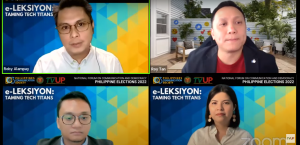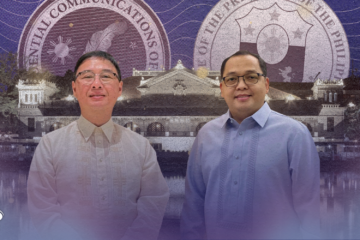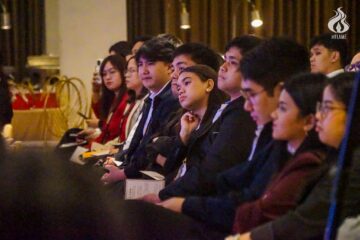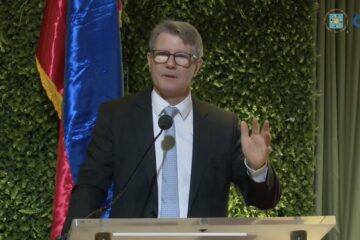
VOTERS SHOULD be critical of what they see on social networking sites, especially during the campaign season, as their political decisions may be shaped by artificial popularity created by online content, data researchers said.
Jon Benedik Bunquin, a mass communication professor at the University of the Philippines, said political decisions may be influenced by algorithmically-curated feeds that technology companies can control.
“The mechanism within the space and the kinds of realities that are formed within the platform help us decide who to vote for,” Bunquin said during the e-Leksiyon: Taming Tech Titans forum last March 9.
“It can provide the illusion of grandness, can manufacture popularity, can manufacture all of these messages that can influence our decision come election time,” he added.
Bunquin said those who strategically use online platforms also control what people see on social media and shape voters’ decisions.
Roy Tan, META Asia-Pacific head for politics and government outreach, said a curated news feed aims to cater to users’ interests, but it could be a “double-edged sword” since it homogenizes the information they receive.
“(Users) need to step back and look at the bigger picture as well. The whole ecosystem of persons on the internet is not just users, but a lot of businesses, NGOs (non-governmental organizations), and they are also speaking to certain target groups of audience,” Tan said.
Tan explained that the contents shown on social media stem from the users’ interactions and preferences, so they should also be aware of the intentions of the stakeholders that they follow.
Marie Fatima Gaw, also a mass communication professor from UP, noted that the logistical power of social media sites filters the contents that surface on one’s account, making one information more noticeable than the other.
“What platforms have is what we call logistical power–to be able to organize things we see. Perhaps two candidates sharing their campaign materials, but they’re not equally given visibility in the platform,” Gaw said.
“Some actors–malign actors–are actually gaming the platform accordances and logics to be able to be more visible, to be able to be recommended in the platforms,” she added.
Gaw urged civil organizations to call out those propagating disinformation, especially those who are connected with government agencies.
“It’s a call for civil society as well to make sure that the government funds are not used for the purposes of manipulating people,” she said.
The forum was the eighth installment of the National Forum of Communication and Democracy: Philippine Elections 2022 webinar series, organized by the Philippines Communication Society and UP’s television network TVUP. F – A.S. Lim



